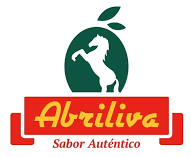So, I was fiddling around with a few Solana wallets the other day, and something felt off about the whole seed phrase setup. Seriously? We’re still relying on this ancient string of words to secure millions of dollars in crypto? Wow! It’s like handing someone a treasure map written in invisible ink. But hey, there’s more to this story, especially when you throw in swap functionalities and browser extensions that promise convenience without the headache.
Okay, so check this out—seed phrases are basically the skeleton key to your wallet. If you lose them, well… you’re kinda toast. At least, that’s the traditional view. But I’ve noticed a shift lately, especially within the Solana ecosystem, where wallets like the phantom wallet are making this process way more user-friendly. It’s almost like they’re whispering, “Hey, you don’t have to be a rocket scientist to manage your crypto safely.”
Initially, I thought the swap feature in wallets was just a neat add-on — you know, handy but nothing groundbreaking. Though actually, once you dive deeper, it becomes clear that integrated swaps are game-changers for DeFi users. Imagine not having to jump between multiple platforms or deal with clunky interfaces just to exchange tokens. That’s convenience at its finest, but with some trade-offs that aren’t always obvious at first glance.
Here’s the thing. Browsing through various extensions, the speed and smoothness with which some wallets operate really surprised me. It’s not just about slapping a button on a browser anymore; it’s about seamless interaction with the blockchain, wrapped in a slick UI. The phantom wallet nails that balance pretty well, offering both security and usability without making you feel like you need a PhD in cryptography.
But, hmm… something bugged me about the seed phrase experience. You know how sometimes you write down your phrase, stash it somewhere safe, and then life happens? These wallets don’t always help you avoid that “oh no” moment when you realize you misplaced it. Sure, they remind you, but I’m not 100% sure if that’s enough. It’s like handing someone a fire extinguisher but forgetting to tell them where the emergency exits are.
Anyway, let me rewind a bit. The swap functionality isn’t just about convenience; it also reflects a broader trend toward decentralization without sacrificing user experience. I remember when swapping tokens meant hopping on DEXs with complicated interfaces and unpredictable gas fees. Now, with built-in swap features, wallets like the phantom wallet simplify that process hugely. Oh, and by the way, the speed on Solana makes those swaps feel almost instant, which is a breath of fresh air compared to Ethereum’s sometimes painfully slow confirmations.
Now, let’s talk browser extensions. At first glance, they seem like a no-brainer: quick access, right? But the devil’s in the details. Extensions can be a double-edged sword—while they add convenience, they also expand the attack surface for hackers. I’m biased, but I trust wallets that have a robust reputation and constant updates. Phantom, for example, has been pretty proactive in patching vulnerabilities and improving user safeguards. That kind of commitment matters to me.

Something else I’ve noticed is that many people overlook the subtle UX choices that make or break wallet adoption. The seed phrase backup prompts that feel more like nagging than helpful, or swap interfaces that hide fees until you’re halfway through a transaction. These little things can totally sour the experience. Phantom seems to get that, offering clear prompts and transparent fee breakdowns that make you feel in control rather than overwhelmed.
On one hand, seed phrases are undeniably crucial—they’re your last line of defense. Though actually, there are emerging alternatives like hardware wallets and biometric security layers that could eventually lessen our reliance on these 12 or 24-word strings. For now, though, mastering seed phrase management is a very very important skill if you want to stay safe in crypto.
My instinct said, «If you’re diving into Solana’s DeFi or NFT space, you’ll want a wallet that handles swaps natively and guards your keys well.» That’s why I keep recommending the phantom wallet. It strikes a rare balance between accessibility for newbies and powerful features for seasoned users.
Here’s what bugs me about some wallets that claim “all-in-one” functionality — they often sacrifice security for speed, or vice versa. Phantom doesn’t feel like one of those. It’s like they listened to what users actually want, not just what engineers think is cool. That’s refreshing.
Still, I’m not 100% sold on browser extensions being the ultimate solution. Mobile wallets and hardware options are catching up fast, and there’s something reassuring about carrying your keys in a physical device you can touch. But for quick trades and everyday use, extensions like Phantom’s are pretty tough to beat. Maybe that’s just me being a creature of habit, though.
One last thought—managing your seed phrase isn’t just about security; it’s also about peace of mind. Knowing you can recover your wallet, swap your tokens, and interact with DeFi apps without breaking a sweat? That’s priceless. Check this out—if you haven’t tried the phantom wallet yet, give it a spin. You might find it’s exactly what you needed all along.
Common Questions About Seed Phrases and Swap Features
What exactly is a seed phrase, and why is it so important?
A seed phrase is a series of words that store all the information needed to recover your cryptocurrency wallet. Losing it can mean losing access to your funds forever, which is why secure backup is critical.
How does the swap function in wallets like Phantom work?
Swap features let you exchange one token for another directly within the wallet interface, often through decentralized exchanges integrated under the hood, making it faster and more convenient than using separate platforms.
Are browser extension wallets safe enough for everyday use?
While they offer convenience, browser extension wallets can be vulnerable if not properly maintained or if users aren’t cautious. Choosing reputable wallets with strong security track records, like Phantom, reduces risks.


